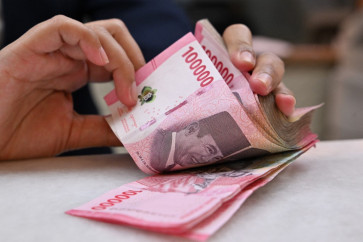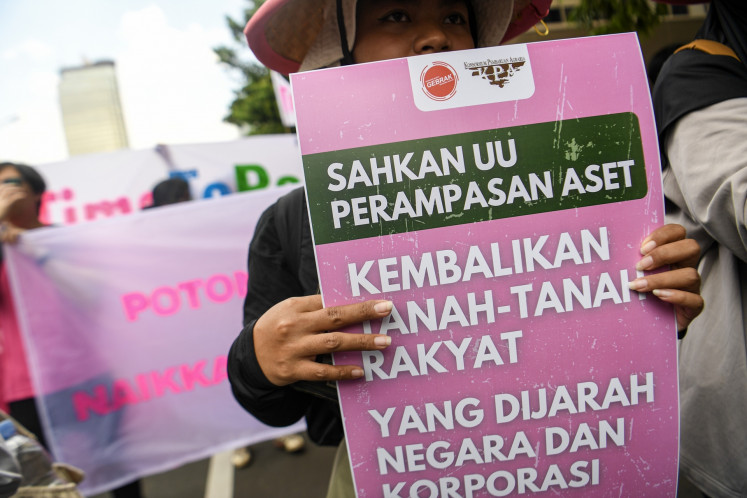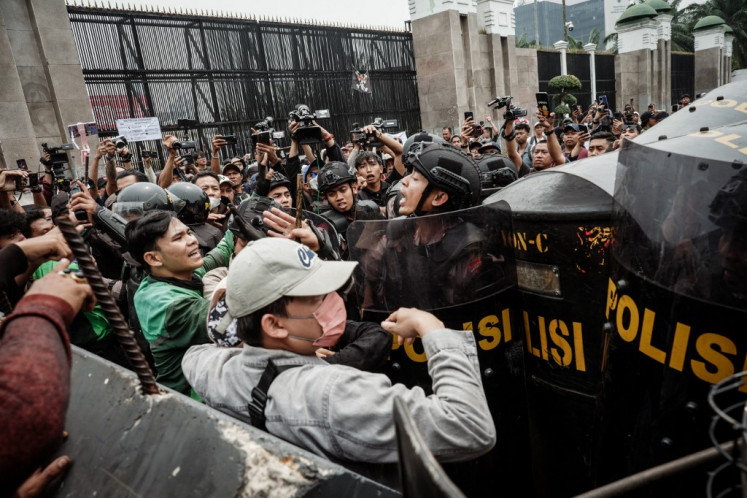Popular Reads
Top Results
Can't find what you're looking for?
View all search resultsPopular Reads
Top Results
Can't find what you're looking for?
View all search resultsDirty money drawn to financial markets
The stellar performance of Indonesia’s financial market in recent years has made investments in securities and also currencies a top choice for money laundering, the Financial Transaction Reports and Analysis Centre (PPATK) says
Change text size
Gift Premium Articles
to Anyone
T
he stellar performance of Indonesia’s financial market in recent years has made investments in securities and also currencies a top choice for money laundering, the Financial Transaction Reports and Analysis Centre (PPATK) says.
Financial markets are attracting money launderers, as opposed to the traditional laundering methods of investing in hard assets such as real estate, due to higher investment returns, better liquidity of assets and legal loopholes, experts say.
PPATK spokesman Natsir Kongah said the banking system was the catalyst for money laundering activity in the financial markets as perpetrators created a complex web of financial transactions using proxy bank accounts.
“They usually use middlemen or fictitious company names when transferring funds,” Natsir said. He added that some money launderers also transferred funds to overseas bank accounts.
A PPATK report shows that as of the end of June, the anti-money laundering agency identified 19,238 suspicious transactions in the financial market comprising 18,285 from currency traders, 932 from security companies and 21 from investment managers.
Last year, the PPATK said, the number of suspicious transactions in the financial market jumped almost five fold from a year before to 15,626.
Similar transactions in currency trading also went up almost five times to 14,813 while suspicious transactions from securities companies more than doubled to 794.
The money laundering law states that a transaction is deemed suspicious if the value does not suit the profile, characteristics or common transaction pattern of a bank account owner, or is funded from criminal acts. The PPATK specifically monitors all transactions above Rp 500 million (US$55,500) prior to checking the profile and characteristics.
Natsir said his institution needed greater authority, particularly to investigate suspicious transactions it found to make police investigations easier. Currently, he said, the PPATK could only accept reports on suspicious transactions and pass them to the police.
Transparency International Indonesia deputy secretary-general Rizki Wibowo said in a discussion forum Tuesday that despite the huge number of suspicious transactions documented by the PPATK, the police had investigated only 8 percent of the PPATK’s reports.
“This fact is a sign of weak law enforcement against money laundering practices in the country,” he said.
Kastorius Sinaga, a sociologist and former advisor to the National Police chief, said money launderers chose financial markets because to date, there were no regulations obliging securities firms, investment managers or currency traders to disclose the history of their funds. “So it’s more difficult for law enforcement officials to detect the source of the funds,” he said Tuesday.
He said most securities firms offered easy investment procedures to their customers and pledged to keep confidential the history of their funds. They also promise customers lucrative yields from their investments in a relatively short period of time, he said. “You can make a profit very quickly in the financial markets and it’s ‘clean’ money.”
Kastorius said that of the 25 criminal acts stipulated in the money laundering law, corrupt practices by public officials were the biggest contributors of funds being laundered. (rdf)










